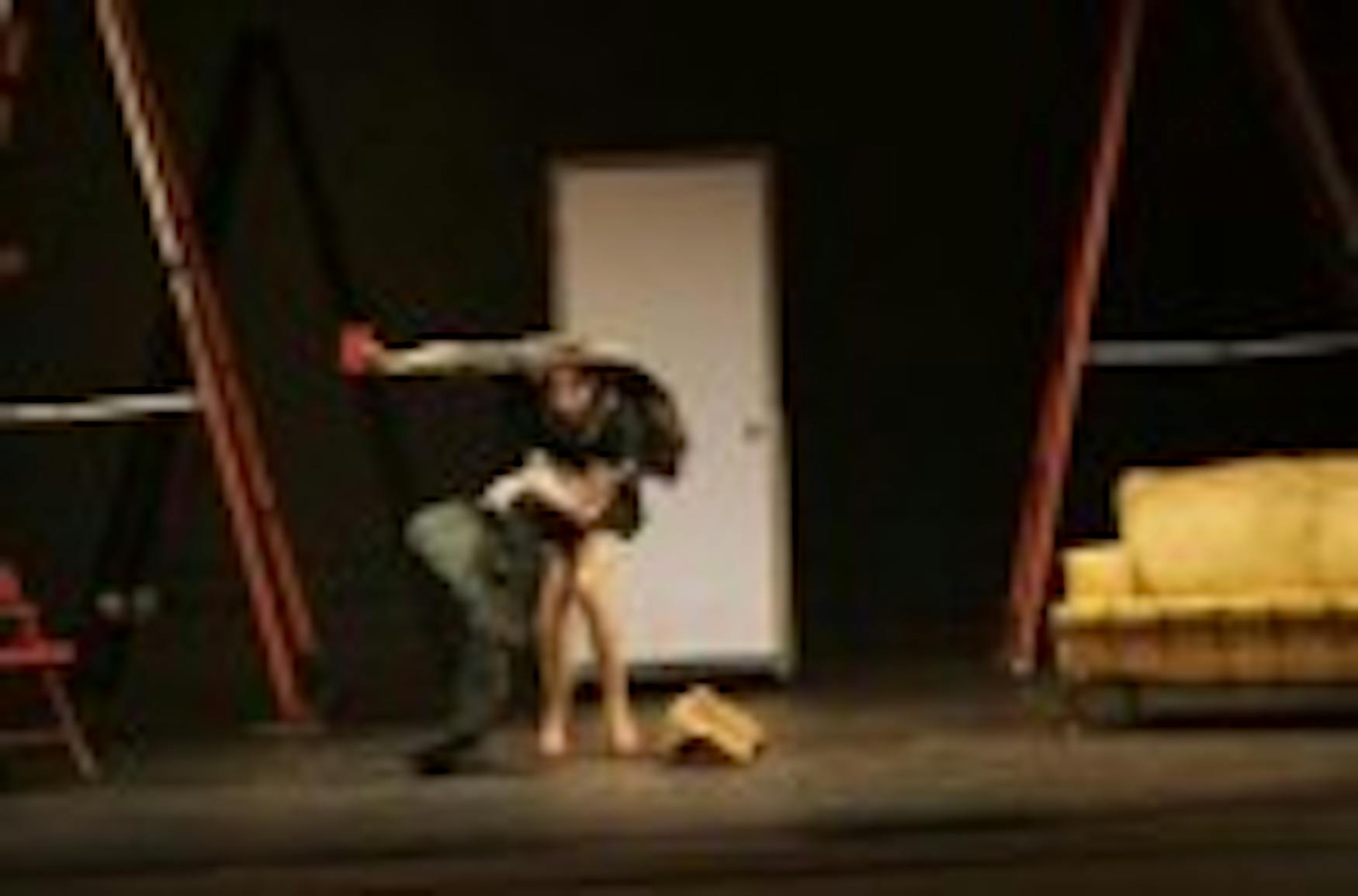The Siegel
The Free Play Theatre Cooperative presents "The Siegel!" Not laughing at this wacky, yet profoundly satirical title? Then you should've seen all of the zany shenanigans that occurred onstage at the Shapiro Campus Center Theater this past weekend. The Siegel, according to the program is "a ridicule," or, for the uninitiated, a parody. The story is about the elusive yet extraordinarily famous writer J.D. Salinger just after he releases the much-anticipated seventh installment to his Holden Caulfield series. Salinger himself does not appear for most of the play, but remains the source of conflict among the characters. The lives of a pompous Hollywood producer, Salinger's promiscuous wife, a clingy outsider and a vampy wanna-be actress collide in a superficial web of Californication, intricately spun by a phantom celebrity.
As if there was any danger that the audience would misinterpret the play as anything other than a parody, the actors assume the role of their peculiar characters even before the play begins Samuel Zelitch '09 walked among the audience as Vincent, a portentous Hollywood producer, fat with his father's inheritance and repulsed by the common folk. Had I only stayed for his pre-play antics and not seen the actual performance, I would have guessed that his role in the play was that of a socially disinclined robot from 1896 who accidentally managed to time-travel to 2007. As if in a daze, he shuffled over to where I was sitting, sporting a fake moustache and scarf, stared at me for three seconds and asked to see my program. "Is.Is.this play "The Segull" by Anton Chekhov?" I told him that he was mistaken, that this play was "The Siegel," a ridicule. "Wh.wh.what? I think that you are wrong," he proceeded, "I paid $80 for these sea-what's a ridicule?" I explained that I wasn't sure, but I think that it meant that it was a parody on something. "Ahh.(pointing to the name Samuel Zelitch on the program) who's that!? How do you pronounce..this.name? There's too many consonants in a row, it's ridiculous!" I tried my best to pronounce his name correctly, and with that, he thrust the program back to me and walked off, in the pursuit of dazzling another audience member.
After other pre-show antics, such as David Brown '09, daintily walking to and fro in a seductive maid's outfit, and Ashley Glicken '09, another maid, carrying on a frivolous phone conversation in her wheel chair, the show commenced in rapid fire fashion. All of the actors rushed onstage in an effort to create a visual of the words of the narrator Alex Fleming '09. Within 10 minutes the actors gave the audience a crash course in the happenings of the '60s, orienting the audience in their new setting. Watching the actors desperately fling themselves across the stage in efforts to keep up with the narration was mildly amusing, but the events being depicted were either unintelligible or unable to be digested at the speed at which they were performed. But, knowing that this play is supposed to be a farce, perhaps these faults were being committed on purpose to accentuate the inundation of meaningless bits of information by the media! Hmmmm.
In any event, what you really want to know is: was the play actually humorous? And the answer is: eh, somewhat. The level of humor of the play as a whole shifted as more and less funny actors entered the stage. For example, before actor Beck Holden '08 entered the story, the play was quite flat because the characters were not realistic enough to relate to and they were mostly over-exemplified caricatures. However, Holden exuded a truer, more believable depiction of his character with his over-zealous, irritatingly happy go-lucky manner. Soon after his entrance, other actors began to shine such as Glicken, who played the maid in a wheel chair, delivered some clever, one-line zingers which brought her sarcastic, quirky character to life. Dan Newman '09, who played J.D. Salinger himself, appeared towards the end of the play as a phantom and exhibited some natural comedic flair with his hyperbolically sinister anecdotes that served as absurd self-deprecation.
Overall, "The Siegel" had its moments. Its goal of parodying Hollywood/L.A. absurdities and mass-media fads was adequately conveyed to the audience. Even though it lacked a coherent flow of sequences and incorporated some meaningless subplots, it held together as an amusing and creative piece of performance art.



Please note All comments are eligible for publication in The Justice.